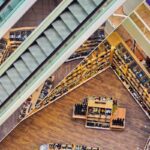Global Courant 2023-05-18 13:28:42
The shadows of two previous brutal wars – and the potential consequences of a war in Eastern Europe – hung over Prime Minister Justin Trudeau when he arrived in Japan on Thursday for the opening of the G7 leaders’ summit.
The day began in South Korea with a memorial service and a steep walk along a newly constructed trail in Kapyeong, the scene of the April 1951 Battle of Kapyong, the first desperate engagement between Canadian soldiers during the Korean War.
The day ended in Hiroshima, Japan, the city destroyed by an atomic bomb in August 1945, the world’s first use of a tactical nuclear weapon by the United States.
Japanese Prime Minister Fumio Kishida deliberately chose his hometown as the location for the meeting of the leaders of the Group of Seven to highlight the risk of nuclear confrontation facing the world today. Russia has more than once threatened to use tactical nuclear weapons in its war in Ukraine.
Trudeau’s tightly scripted visit to Kapyeong, about 50 kilometers northwest of Seoul, saw him open a so-called peace path on the rugged landscape of the former battlefield. The hiking trail links former Canadian positions and ends at the top of Hill 677, the strategic position Chinese troops attempted to capture on a drive to take Seoul, the South Korean capital.
Prime Minister Justin Trudeau speaks with students as they descend the Kapyong Battle Commemorative trail in Kapyeong on Thursday. (Adrian Wyld/The Canadian Press)
The offensive was halted by the Commonwealth Brigade, which consisted of Canadian and Australian troops supported by American tanks.
“It’s a very important battle at a very important time in the war,” said Andrew Burtch, a Canadian War Museum historian. “Had it gone bad it might have produced very different outcomes for South Korea and that is one of the reasons it is so remembered in terms of its wider importance to Canadian military history.”
Over 500 Canadians killed in the Korean War
The Prime Minister’s visit on Thursday is significant because, unlike European battlefields, few Canadian politicians have roamed Korea. During the Korean War, 516 Canadians were killed, including 10 at Kapyong.
“It’s a piece of ground that hasn’t been as well documented, perhaps as other battles — admittedly more expensive battles during World War I and World War II, but it still resonated long after the guns stopped firing,” Burtch said.
This year marks the 70th anniversary of the armistice that ended the Korean War, a fact that also makes Trudeau’s brief stay on the trail significant. He took part in a short wreath-laying before hiking the trail to the top, where he mingled with some students from a Canadian private school, CMIS Canada.
Memories of another more devastating war were clear when Trudeau landed in Hiroshima, where nuclear disarmament is considered almost an article of faith, especially for the Japanese prime minister.
“Kishida walks a fine line,” said Chris Johnstone, an expert on Japan at the Washington-based Center for Strategic and International Studies.
“He recognizes the need for the nuclear umbrella, Japan’s reliance on the U.S.’s comprehensive deterrence; that that’s frankly more important than ever in today’s security environment, but he still maintains this vision, if you will, of a world without nuclear weapons.”
Prime Minister Justin Trudeau and South Korean President Yoon Suk Yeol unlink their arms after a toast at an official dinner at the Blue House in Seoul on Wednesday. (The Canadian Press)
Many of the atomic bomb survivors have told the Japanese media that they hope the leaders of Western democracies will change their perception of nuclear weapons by walking on the ground where they were used.
Roland Paris, a professor of international affairs at the University of Ottawa, said the world is in a precarious state as many of the arms control agreements that kept the possible use of nuclear weapons in check have been wiped out.
“A lot of those mechanisms that help stabilize the nuclear world since the Cold War, during the Cold War, those mechanisms have eroded,” Paris said.
“Those nuclear arms control agreements have been pushed aside. There is more and more nuclear chatter with sabers.
“I think the fact that this summit is being held in Hiroshima will have great symbolic significance.”
Paris said the G7 summit could at least provide an impetus to renegotiate some of those agreements that have fallen by the wayside.







